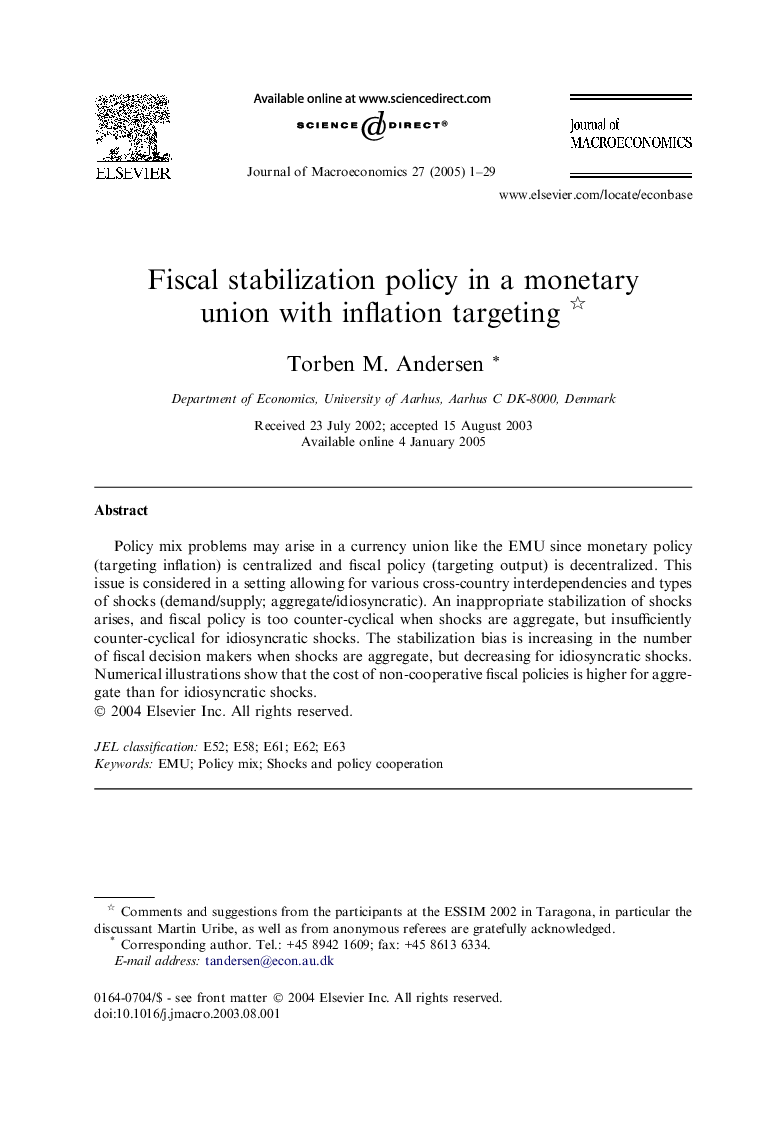| Article ID | Journal | Published Year | Pages | File Type |
|---|---|---|---|---|
| 10478277 | Journal of Macroeconomics | 2005 | 29 Pages |
Abstract
Policy mix problems may arise in a currency union like the EMU since monetary policy (targeting inflation) is centralized and fiscal policy (targeting output) is decentralized. This issue is considered in a setting allowing for various cross-country interdependencies and types of shocks (demand/supply; aggregate/idiosyncratic). An inappropriate stabilization of shocks arises, and fiscal policy is too counter-cyclical when shocks are aggregate, but insufficiently counter-cyclical for idiosyncratic shocks. The stabilization bias is increasing in the number of fiscal decision makers when shocks are aggregate, but decreasing for idiosyncratic shocks. Numerical illustrations show that the cost of non-cooperative fiscal policies is higher for aggregate than for idiosyncratic shocks.
Related Topics
Social Sciences and Humanities
Economics, Econometrics and Finance
Economics and Econometrics
Authors
Torben M. Andersen,
